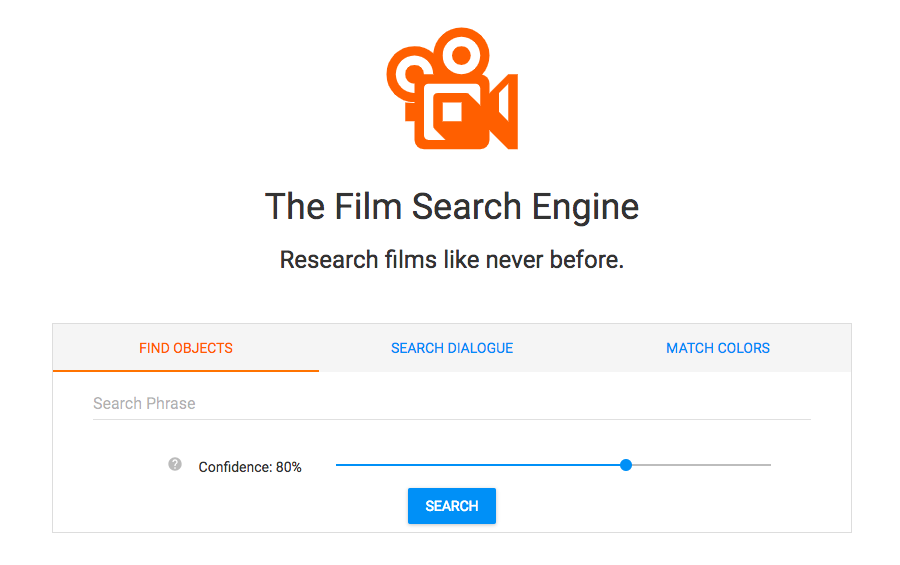
This John Hunter received a L&IT 2018 Summer Research Project grant to expand the functionality of his Film Search Engine. Working with him was Sarah Eckermann, who is also his Presidential Fellow. Here is an update on their progress:
The Film/Search Engine’s ongoing projects this summer focused around integrating the three main modules that can be used to search/analyze the films in the database with the new front end: those modules are (1) a text-string search that looks for search strings in the closed caption files of the films; (2) an object search that uses neural net processing to find objects from a pre-determined list in the films (e.g. a search for all of the bicycles or American flags in the films); and (3) a color search that allows users to enter a sample still image and return stills from the films that match one or more of the colors in the image.
The first task of the summer was to supervise the transfer of all of the database files from Bluehost to Amazon Web Services. Once this was done, the problem that we set out to solve at the outset of the summer was how to integrate the four modules of the Engine given that they were written in three different programming languages (JavaScript for the front end; NodeJS for the object search and text search; and Python for the color search) and had been composed over a period of three plus years by two senior design teams and four individual programmers! Senior design teams only work for one year and student researchers graduate (much to their faculty supervisor’s regret :-), so this will be an ongoing condition of the project, especially as it grows in size and complexity. A new medium term goal for the project is thus to come up with a workable plan that will permit each new programmer (or team) to build upon a stable foundation such that their differences and new approaches will be an asset rather than a new complication.
The color search proved to be an especially difficult module to integrate with the front end; even the transfer from one student programmer’s computer to another caused bugs that took a while to detect and correct. The good news is that all four modules work well in themselves and that all but the color search have been integrated with the front new end. The other main task for this summer was to co-write and present a scholarly paper at the Keystone Digital Humanities Conference at Penn State University on July 16 – 18. Professor John Hunter discussed the theoretical and conceptual bases for the project and Sarah Eckermann ( ’20) did an excellent job of lucidly explaining the programming and design challenges; she also demonstrated the object search and color search in action and handed audience questions. Three years ago at the same conference in Philadelphia, Hunter and Sarah’s predecessor Justin Eyster (’16) had introduced an earlier version of the Film Search Engine and described the object and color searches as future goals. It was thus very satisfying the mark the progress that we have made on the project – especially when two members of the audience told us that they remembered the first talk and could see how far we have come.
Other than rationalizing the coding structure for the Engine, the next challenge that we plan to take up is how to more efficiently scan films into the database. Those will be the goals for AY 2018-19. Check out the Film Search Engine!
Project: Film Search Engine
Faculty: John Hunter, Comparative & Digital Humanities
Student: Sarah Eckermann (Computer Engineering ’20)
DP&S Liaison: Diane Jakacki
Date: Summer 2018